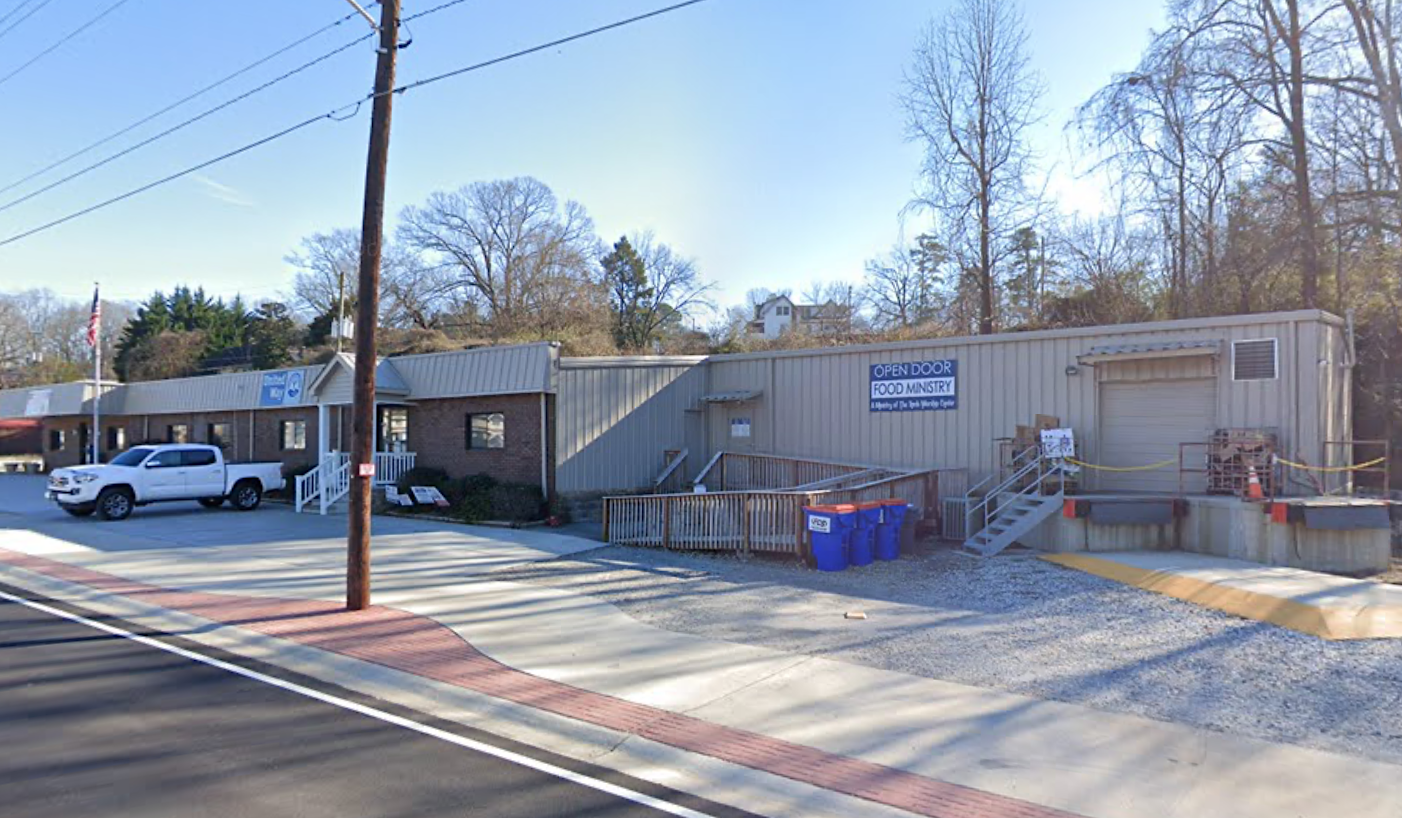
In July 2020, with the pandemic raging across the United States and here at home, thousands of Northeast Georgians needed emergency food assistance. At that time, Georgia’s eight regional food banks experienced a 30-40% increase in people seeking assistance over those who needed help just three months earlier. Much of that increase was driven by the sharp rise in unemployment.
A year later, the need for emergency assistance has eased, but food insecurity persists.
If they fall short
The U.S. Department of Agriculture defines food insecurity as “a lack of consistent access to enough food for an active, healthy life.” Food insecurity affects people of all ages. According to Feeding America, the nation’s largest domestic hunger-relief organization, one in seven people in Northeast Georgia struggles with hunger.
Karmen Hulsey, missions director of Chattahoochee Baptist Church in Cleveland, has seen the numbers of people coming to pick up food at her church decrease in the past few months. She credits the government’s COVID assistance programs with the decline.
“We are grateful that the community is getting what they need,” Hulsey shares.

The church started its second Wednesday of the month free food distributions last fall. Partnering with There’s Hope for the Hungry, a food distribution organization located in Cumming, Chattahoochee Baptist has helped area residents keep food on their tables during this pandemic.
Chattahoochee Baptist is among more than forty North Georgia churches that have teamed up with There’s Hope to meet the region’s food insecurity needs. According to the organization’s website, since January, they have fed 4,908 families and 12,740 individuals. Those figures include thousands of children and senior adults.
“We want to be there if they fall a little short or a lot short,” says Hulsey. “That is what this distribution is all about: Loving, serving, reaching, and giving like Jesus.”
Cornelia United Methodist Church took up that call last year.
According to Debbie Rumbold, chairman of Cornelia UMC’s kitchen committee, when everything shut down from COVID, the kitchen workers at the church began feeding their community instead of feeding the church. They prepared free community meals every week for as long as they could afford it. After several months, they moved to provide once a month free drive-through dinners.

Donations from church members and stores like Jaemor’s and Walmart helped keep the ministry going.
According to Rumbold, they’ve recently heard from school nurses and administrators that there are children in local schools who are still facing food insecurity. To continue to meet these needs, Cornelia UMC has become one of the newest organizations to affiliate with the Northeast Georgia Food Bank. Through that partnership, the church will distribute free dinner and groceries to the public from 4-5 p.m. on Saturday, May 15. No reservations are needed.
Cutting back hours
As Cornelia UMC prepares to expand its food distribution services, the Torch Worship Center in Demorest is scaling back slightly.
The Torch has been providing food assistance to the community for years. Their efforts ramped up significantly at the height of the pandemic and included distributions at its Dahlonega campus as well.
In recent months, The Torch, like Chattahoochee Baptist, has seen the numbers of those seeking assistance decline.
Mike Thomas is the Executive Pastor for Outreach at The Torch and heads up the church’s food assistance ministry. Thomas attributes much of the current decline to the government assistance programs Hulsey referenced. He expects the downturn is temporary. Still, in response, the Open Door Food Pantry is cutting back its hours.

The pantry has moved from being open three days to now two days a week, cutting out Monday as a distribution day. Currently, food assistance at the Open Door Food Pantry is available on Wednesdays from 5 – 7 p.m. and Saturdays from 10 a.m. – 12 p.m. The pantry is located at 236 Level Grove Road in Cornelia.
The Torch still offers drive-through food distributions on the first Saturday each month at its Demorest campus.
“Still lots of people needing help”
Many Northeast Georgians have relied on federal financial assistance such as stimulus checks and boosted unemployment benefits to weather the pandemic. Tracy Massey, one of the managers of the Food Bank of Northeast Georgia, says it appears those measures have made a difference but, “There are still lots of people needing help in Northeast Georgia,” she says. “We’re seeing lots of people in need, we have new people calling for help, and we’ve had new clients walking in.”
Those numbers could increase as Georgia joins other states in reducing jobless benefits.

Effective June 26, Georgia will no longer participate in a federal program that provides boosted $300 unemployment benefits. The state is also withdrawing from a federal program that made unemployment available to those who would not normally qualify. The programs were set to expire in September.
Georgia Labor Commissioner Mark Butler and Gov. Brian Kemp decided to withdraw from the programs early to encourage more people to go back to work.
Those unable to work or those returning to low-wage jobs may still need to rely on food assistance programs to stretch their budgets.
As the public and private sectors continue to rebound, local food banks continue to work through churches, civic groups, and other organizations to help those in our area struggling with food insecurity.
Food banks rely on private donations to keep their assistance flowing.
Canned food drives are helpful, but food bank administrators say the most effective way to help is donating money. Because most food banks can purchase wholesale, they can use one dollar to purchase more than just a can of beans.
The Food Bank of Northeast Georgia’s former executive director Chuck Toney said, “With $10, the Food Bank can provide forty meals.”
That’s stretching a dollar to its maximum fulfillment.
To donate to the Food Bank of Northeast Georgia, visit FoodBankNEGA.org online. You may also mail checks directly to 861 Newton Bridge Road, Athens, GA 30607 or 46 Plaza Way, Clayton, Georgia 30525







